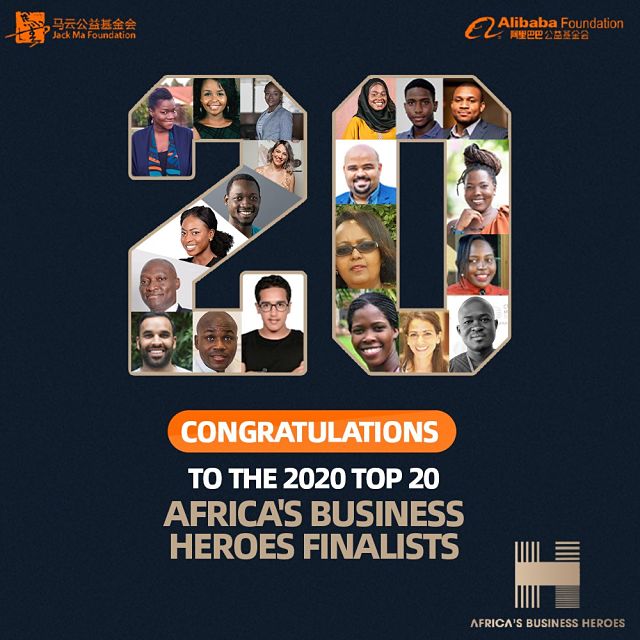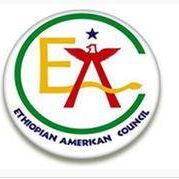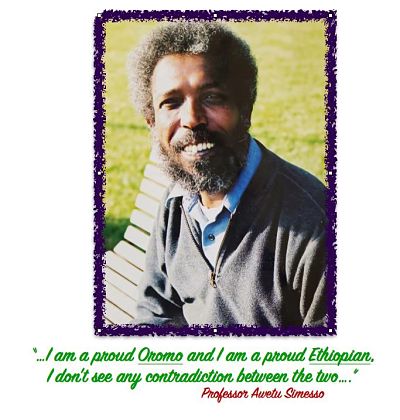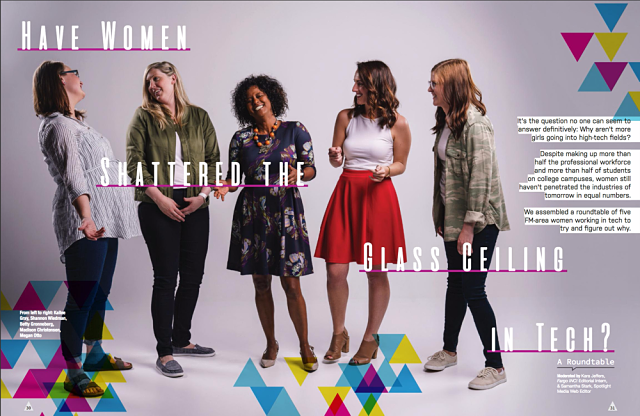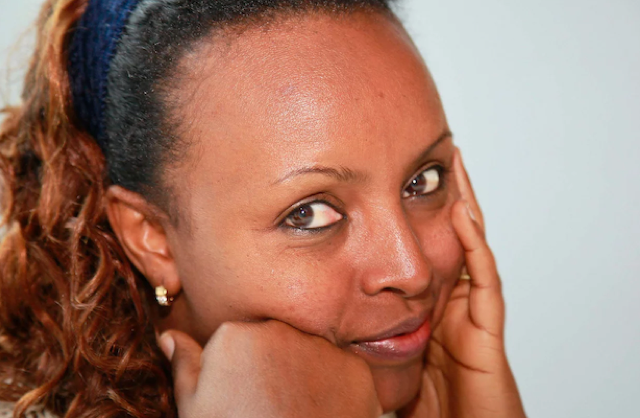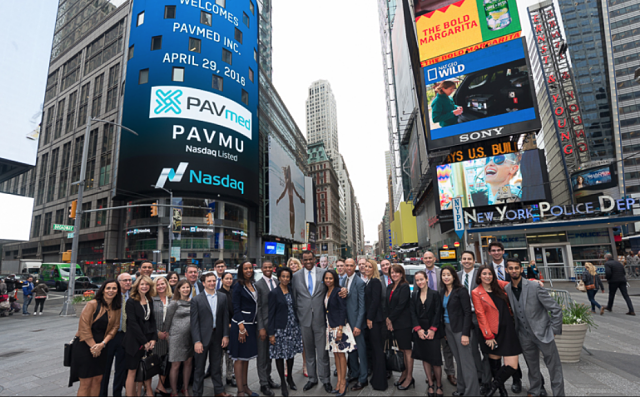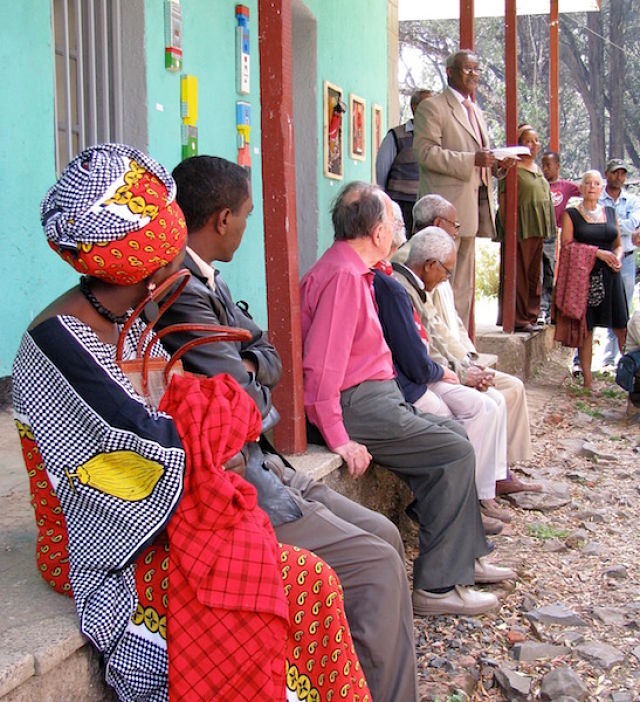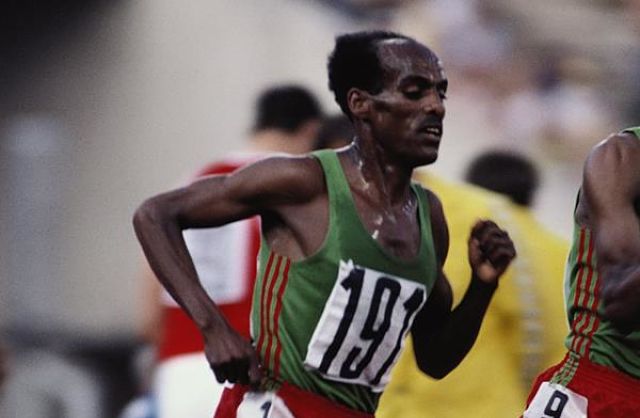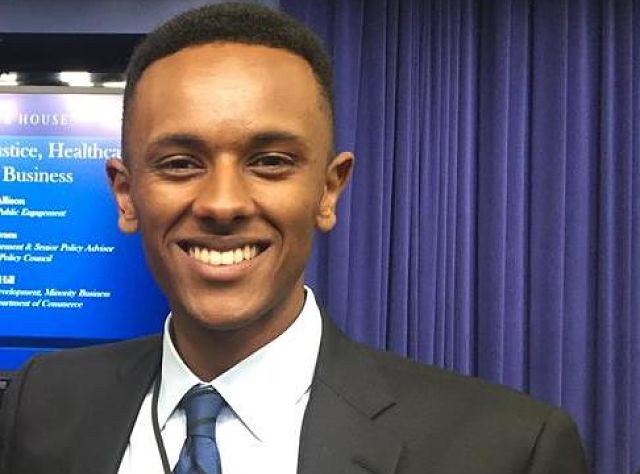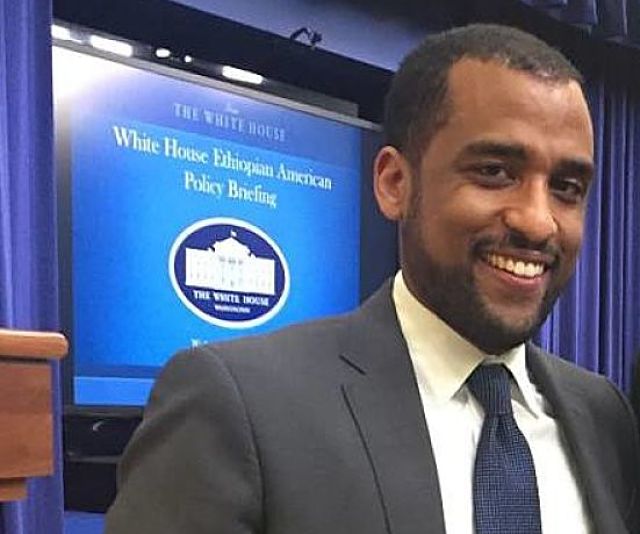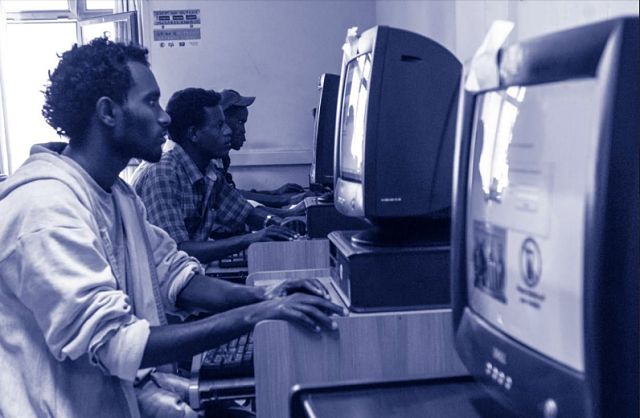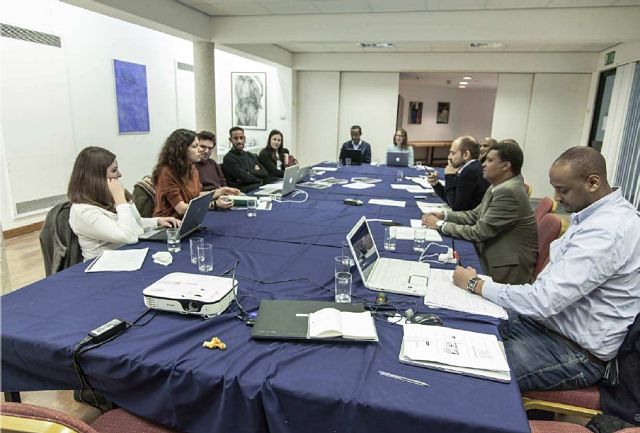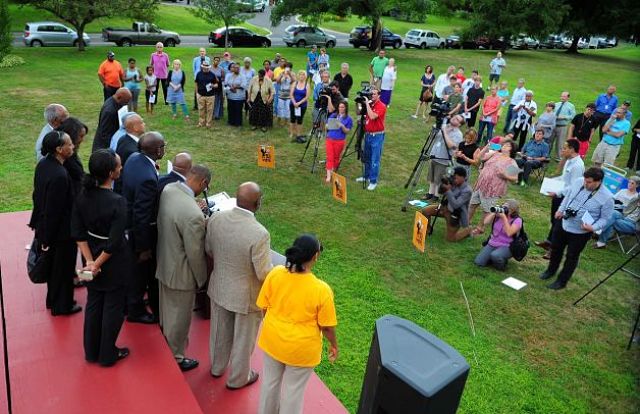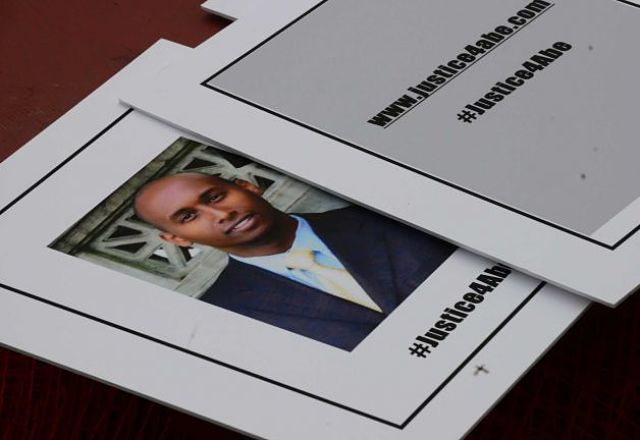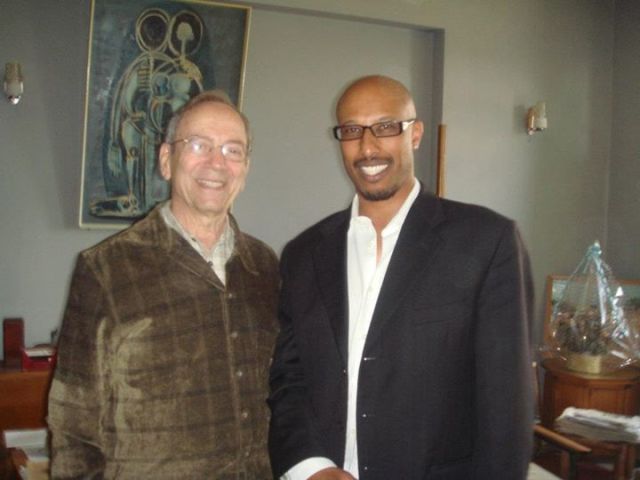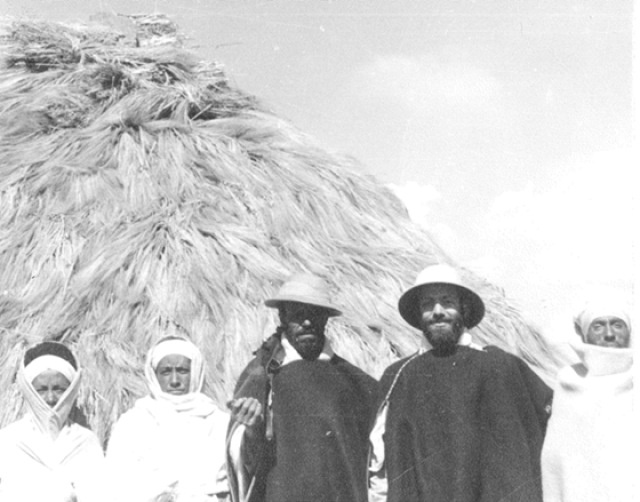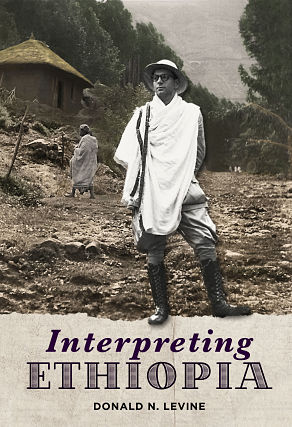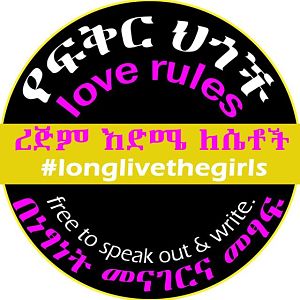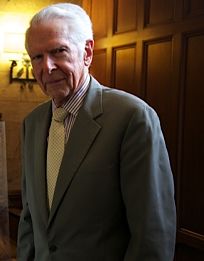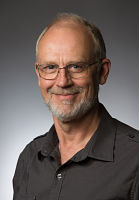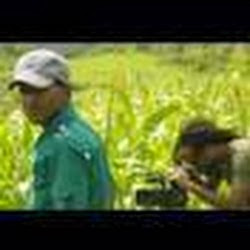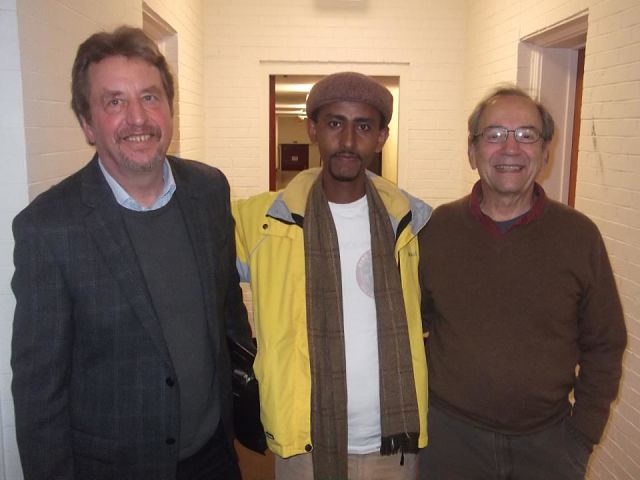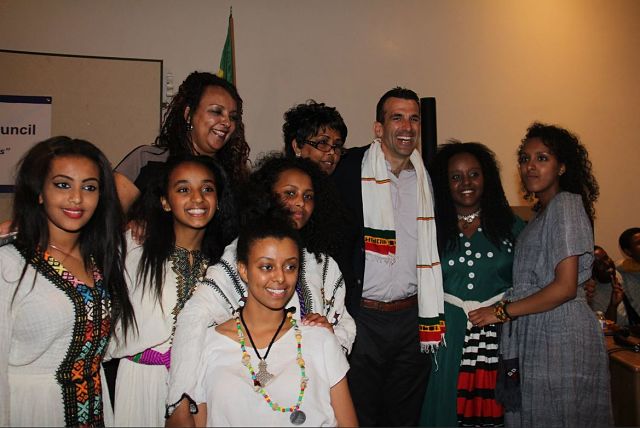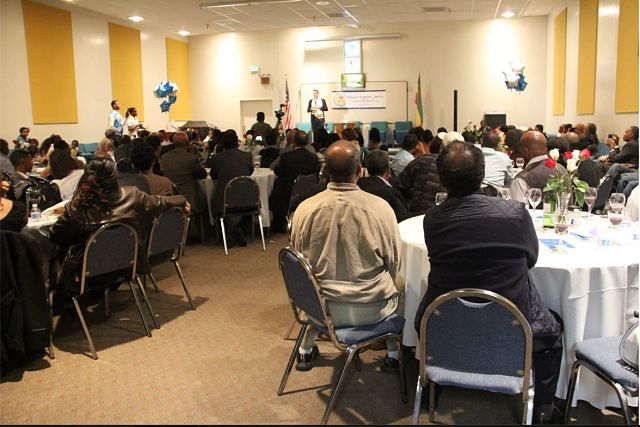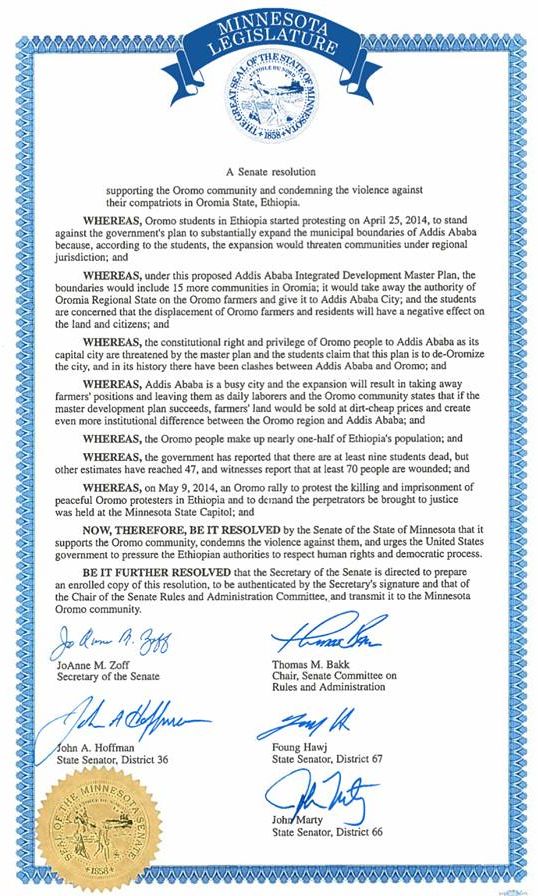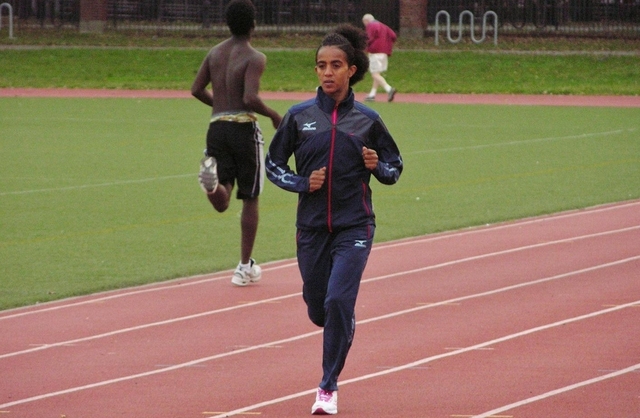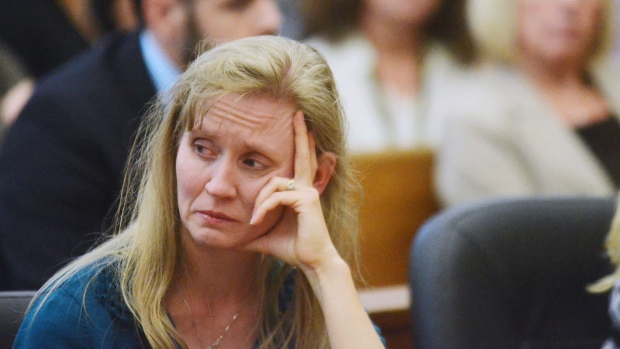Tadias Magazine
By Tadias Staff
Published: Thursday, July 24th, 2014
New York (TADIAS) – Although Bill Gates never graduated from college, dropping out of Harvard to start Microsoft, the American business magnate and philanthropist has received many honorary degrees from around the world, and now also his first from an African university. Gates was awarded an honorary doctoral degree from Addis Ababa University on Thursday, July 24th.
“It is a special honor to receive an honorary degree from Addis Ababa University,” Gates said in his speech. “This is one of the leading institutions of higher learning in Africa – a continent whose future has been a central interest of my career ever since my wife and I began our foundation nearly 15 years ago.”
Per AllAfrica.com “Ethiopian Foreign Minister Tedros Adhanom Ghebreyesus said it is the Microsoft founder’s first honorary degree from an African university.”
Below is the text of Bill Gates’ Speech to students at Addis Ababa University courtesy the gatesfoundation.org.
Bill Gates
Addis Ababa University Honorary Degree
July 24, 2014
AS PREPARED
Thank you for that introduction, Dr. Admasu Tsegaye [President of Addis Ababa University].
Prime Minister Hailemariam; distinguished guests; faculty and students of Addis Ababa University.
I am deeply grateful for this honorary degree.
I never got my real degree. I dropped out to start Microsoft, and never went back. So getting a diploma I can put on the wall and show my father is a relief.
It is a special honor to receive an honorary degree from Addis Ababa University.
This is one of the leading institutions of higher learning in Africa – a continent whose future has been a central interest of my career ever since my wife and I began our foundation nearly 15 years ago.
The first time Melinda and I came to Africa, 20 years ago, we were on vacation. We visited Kenya, Tanzania, Rwanda, and Burundi. We were awed by the natural beauty. But we were no less awed by the poverty we witnessed. Children were dying from illnesses we’d never even heard of.
This struck us as deeply wrong – and totally unnecessary.
The foundation we started took as its motto “All Lives Have Equal Value” – because it was so obvious to us that the world was clearly not treating all lives as having equal value. If it were, kids wouldn’t be dying by the millions from diseases that are preventable and treatable.
In short, coming to Africa inspired us to start our foundation.
Of course, the Africa I’m visiting today is not the Africa we saw back then.
You know the stats: Income per-person in sub-Saharan Africa is up by two-thirds. Seven of the 10 fastest-growing economies in the world are on this continent.
I could go on. But I didn’t come here to give a speech about economic statistical phenomena – because those figures don’t get at the real reason why I’m optimistic about Africa.
The real reason why I’m optimistic about Africa is that this continent is now in an incredible position to shape its own destiny for the better.
Why is this the case?
For one very simple and powerful reason: the countries of Africa are learning from each other.
I know that much of the narrative over the years about Africa has focused on how outside entities can help the people of this continent – whether those entities are foreign governments, or international aid organizations, or non-profits such as our own foundation.
Make no mistake – outside support has made a big difference, and will continue to do so. I spend a lot of my time advocating for donor countries to maintain foreign assistance focused on the needs of the poorest – and such assistance does indeed have an absolutely critical role to play.
That is also why our foundation has such a focus on Africa, investing in research and supporting delivery efforts on the issues of greatest consequence to the people of this continent – from HIV/AIDS to malaria.
In doing so, our priority is to support programs developed by Africans, for Africans, because we understand that the real fuel for development will be the resources of African nations themselves – whether that’s in the form of government funding, private-sector investment, or just plain human creativity at all levels of society.
This is where the idea of “African countries learning from each other” becomes so important. If you want to spend your national budgets as effectively as possible, there is now a clear path for doing exactly that – and Africans themselves are defining that path, for others to follow if they choose.
That path may not be easy, but it’s fairly simple to explain, and it comes down to this: If you want your country to rise from low-income to middle-income status, emphasize two things: health and agricultural development.
If you get health and agricultural development right, the gains are exceptional, and they reverberate through the rest of your economy for decades to come.
African leaders have formally acknowledged these truths. At Abuja in 2001 and Maputo in 2003, the delegates to the African Union agreed to targets for investment in these sectors.
While the progress since then has been uneven, the emphasis on health and agriculture is absolutely right.
The reason for this is straightforward: There is no path to lasting growth within Africa that is not widespread growth. It’s not possible. If Africa seeks prosperity, it must provide for the health and nutrition of all – including the poorest. Unless this continent brings its rates of malnutrition and premature mortality way down, it will not achieve the productivity levels necessary to compete in the global marketplace.
I fully realize that health and agricultural productivity are far from the only factors in economic growth. There are plenty of others – education, good governance, a sound physical infrastructure, to name just a few.
There’s no question that a modernized approach to development finance is another much-needed factor in equitable growth. Ethiopia is going to host a very important Financing for Development conference a year from now. That gathering will seek to establish a vision of finance for the new targets that will succeed the Millennium Development Goals.
That will be a critical opportunity for the world to commit to the public and private investments that are necessary if we are to continue to accelerate human development and economic growth.
To be successful, that new vision of development finance will need to be rooted in basic human needs. In fact, any sensible definition of what it means to be a middle-income country should go beyond per-capita numbers and include some measure of achievement on basic human needs like health and nutrition.
Across Africa, some countries are doing a very good job of meeting those needs – and others are not. The differences in outcomes are striking, even for countries with similar resources.
That variance represents a massive opportunity for countries to learn from each other’s best practices. If you learn from each other, then all countries in Africa should be able to do as well as the highest performing countries. That would be a stunning transformation.
A great place to start this conversation is where I’m standing today – Ethiopia.
I realize this is a nation that still faces many fundamental challenges, but Ethiopia has made enormous relative improvement in both health and agricultural productivity, which will give the country a solid basis for lasting growth.
Yes, Ethiopia remains for now a low-income nation by global standards – but that’s exactly my point.
With per-capita income comparable to many other African nations – and considerably smaller than some – Ethiopia is putting itself on a path to the global middle class.
If this proud country – which 30 years ago was seen by many as the world’s most extreme example of poverty and malnutrition – can put itself on this trajectory, there’s no good reason why other African countries can’t do the same.
What has Ethiopia done right? Quite simply, it has made health and agricultural development top priorities.
I want to talk briefly about what it’s done in both of these areas, and mention a few other nations that have also generated good examples in each.
Let’s start with health.
Our foundation started with a focus on health because that’s where the evidence pointed us. We were looking for the most strategic way to fight inequity so that our resources did the greatest good for the greatest number. Investing in health generates extremely high returns for huge numbers of people.
Here’s a striking illustration of that: A recent global commission of leading economists found a strong connection between health and national prosperity. Its report stated that about 11 percent of the economic growth in low- and middle-income countries from 1970 to 2000 resulted from reductions in adult mortality.
Conversely, there’s a vicious cycle that results from not investing in health – and here too, the results show up on a national scale.
For example, malaria kills more than 600,000 people a year. That’s a big number. But it actually understates the problem – including the calamitous economic costs of the disease.
Malaria infects roughly 200 million people annually, of whom probably more than 99 percent survive. At best, the survivors have to miss school or work for extended periods. At worst, they suffer lifelong disabilities, including cognitive impairment that virtually guarantees they’ll never reach their full potential.
Even when malaria and other diseases don’t take children’s lives, they can steal their future – and slow the progress of a nation.
This is the right time to invest in eradicating malaria – and other diseases that have long plagued this continent.
When I first started learning about development, there wasn’t a lot of hope that we could make rapid progress against malaria. Parasites had developed resistance to chloroquine – the main drug used to treat the disease – and malaria was resurgent across much of sub-Saharan Africa.
Since then, the global research community has begun committing more resources to malaria and other illnesses that disproportionately affect this continent. New vaccines and other health advances are emerging as a result.
But something else has been happening, as well. And that “something,” once again, is that Africa is learning from itself.
Countries on this continent – including some very poor countries – have made crucial innovations in providing for the health of their people. These innovations are models that virtually any African nation can follow, regardless of income.
Ethiopia has helped set the standard – most notably with its groundbreaking Health Extension Program. The federal government recognized that if it was going to make good on the Millennium Development Goals, it was going to have to expand access to primary health care across this large, predominantly rural country.
It came up with a smart plan. It identified the geographical gaps in health coverage, and went about filling those gaps, deploying more than 38,000 health-extension workers – nearly all of them women – in over 16,000 health posts nationwide.
Since its inception in 2004, the Health Extension Program has provided a range of vital services in maternal and child health; disease prevention; sanitation and hygiene; and basic health education.
Overall, the Health Extension Program has been a great success – and you can see it in the data.
The under-five mortality rate fell 67 percent from 1990 to 2012, meaning that Ethiopia met this Millennium Development Goal. The rate of decline has been especially impressive since the middle of the last decade, when the Health Extension Program began its work.
Ethiopia has shown a willingness not only to invest in health, but to do something that is sometimes even more difficult for governments, on any continent: It has been willing to measure results, adapt where needed, and admit the shortcomings that still exist.
For example, the Health Extension Program has been quick to offer new interventions in response to practical needs – such as by allowing health extension workers to treat childhood pneumonia and provide new, long-acting family-planning methods.
It has also been willing to collaborate – as it has with one of our grantees, L10K, which serves as a bridge from households to the Health Extension Program.
The government recognizes that while it has achieved great gains in combating child mortality, it still has much work to do to reduce Ethiopia’s maternal mortality rate, which remains one of the highest in Africa.
The Health Extension Program is a remarkable example that other African nations, such as Namibia, are already learning from.
On vaccines, there is enormous variance across Africa. Across the continent, vaccine coverage ranges from the mid-90s to well under 50 percent. Ghana – another African country that could serve as a model for development in both health and agriculture – has been among the continent’s best examples on vaccination.
In 2012, with assistance from the GAVI Alliance, Ghana took the innovative step of simultaneously rolling out pneumococcal and rotavirus vaccines – the first time any African country had introduced the two vaccines at the same time.
The project was a success, and by the end of the decade, vaccines against two of the most prolific killers in the world – diarrhea and pneumonia – will be available in nearly every African country, thanks in part to GAVI’s excellent work, and in part to the national model that Ghana has established.
With regard to malaria – which I talked about a moment ago as an example of the economic burden of disease – a number of African countries, such as Zambia, are demonstrating that progress is possible where governments take determined action.
If this is the case now, with the weapons currently at our disposal, it will be even more so as new medications and other tools become available.
And while there is still a long way to go, it is inspiring to see the public-health gains so many countries in Africa have made in recent years. Along with Ethiopia, countries from Liberia to Malawi to Tanzania have met the MDG goal of cutting mortality by two-thirds even before the 2015 deadline. Others, like Madagascar and Niger, are on the verge of doing so.
That progress is both accelerating and spreading – in countries like Senegal and Rwanda, the rates of improvement are among the fastest we have measured in recent decades. That translates into millions of lives saved – young Africans who will soon be the ones leading the continent into the future.
Now I’d like to turn to the other central element of lasting growth for Africa – agricultural productivity.
Here too, Ethiopia has been a leader. The federal government did something extraordinary – it set up an organization, the Agricultural Transformation Agency, or ATA – that focused on providing data-driven, evidence-based solutions to improving farm productivity nationwide.
It’s very strategic for an African government to place this kind of bet on agricultural innovation. After all, the continent’s economy remains heavily reliant on agriculture: Two-thirds of Africans depend on farming for their livelihoods. Ethiopia is no exception to this reliance: Agriculture accounts for about 45 percent of its GDP.
I’d like to mention a couple of great examples of what Ethiopia has achieved with its ATA initiatives. One of them involves one of my favorite subjects: fertilizer.
For the past three decades, Ethiopia had used only two types of fertilizer. When you think about how big and geographically varied this country is, that didn’t make much sense. After all, different fertilizers work best in different soils.
The ATA, working with the Ministry of Agriculture, found that the best way to assess fertilizer needs nationwide was to analyze the soil using a combination of ground measurements and remote sensing.
I had the privilege of seeing this project myself on my last visit to Ethiopia. I got to see the special soil augurs and sampling techniques that your teams were using. The result of this effort is a soil-mapping system that’s unprecedented not just for Africa, but for virtually anyone in the world.
By the end of this year, the government will have mapped soil properties for the whole of Ethiopia. Our foundation provided some early support for this effort, and we’re proud of the results.
There’s also been some great innovation with regard to farmer-owned cooperatives. These have a mixed record in Ethiopia and across Africa, but can provide much-needed services for their members, such as distribution and marketing. The world-renowned coffee sector here in Ethiopia has seen good examples of this.
Now the ATA is leading a $50 million project to build storage capacity within these cooperatives – it’s a three-year undertaking, and is drawing upon $3 million in capital from the World Bank. It’s a good illustration of how a little outside money can supplement a much larger government-led initiative to support farmer-owned, private-sector organizations.
Ethiopia has begun to branch out from the collectives, and to open up its agricultural market. It is expanding its own version of an agro-dealer program as seen in other parts of Africa, including through direct-seed marketing.
Just last year, some regional bureaus of agriculture began supporting the marketing of certified seed from producers directly to farmers through independent distribution agents – a departure from the traditional approach, which was exclusively through a public-sector process.
By opening its markets further – and by seeking the involvement and consent of the rural communities themselves – Ethiopia could realize significant gains from its most important resources of all: the ingenuity and creativity of its own people.
Other countries – such as Ghana, Nigeria and Tanzania – have undertaken their own bold investments, with huge payoffs. These are innovations that nations throughout Africa could emulate or adapt.
For example, Nigeria has established staple-crop processing zones to encourage investors to set up processing facilities near areas of high production for certain key crops, such as rice or cassava. This literally shortens the distance between producers and processors, and helps ensure more effective use of resources.
While we admire these and other agricultural innovations unfolding across the continent, far more needs to be done. African food production has not kept up with population growth – and that growth will only accelerate in the near future.
Nor is Africa’s agricultural sector moving quickly enough to meet another accelerating challenge: global climate change, which poses an especially severe danger to this continent, its agricultural productivity, and its overall development.
What is needed is a continent-wide commitment to a new generation of sustainable agricultural productivity, in the spirit of the Green Revolution that did so much to propel large sections of Asia and Latin America into the global middle class.
We are proud to be partners with the Alliance for a Green Revolution in Africa – an African organization advancing African solutions, with a necessary emphasis on smallholder farmers, and on female farmers – who bear immense responsibility for overall agricultural production in Africa, but who realize relatively few of the economic gains.
I am heartened by the commitments made on agricultural development at the African Union summit last month – including commitments to allocate at least 10 percent of public expenditure to agriculture, and to work toward ending hunger in Africa by 2025 by at least doubling productivity in the sector.
Any commitment to lifting agricultural productivity in Africa – or to improving health – will require both realism and optimism.
Usually, people assume that realism and optimism describe two different schools of thought. I disagree. I believe my optimism about the future of Africa is extremely realistic.
You already have the tools to decrease child mortality and increase agricultural yields significantly. In the next decade, these tools will keep improving. You also have examples of countries that have invested in health and agriculture to make life better for their people.
So, we know that if a country in Africa is not improving in health, or not producing enough food, its first reaction should not be to seek scapegoats or excuses.
No, the first reaction should be to learn from your neighbor. Because that country has as many challenges as you do – but it also has good ideas that you can adapt to your own circumstances.
The rise of this continent will depend on whether leaders – here in Ethiopia and all across Africa – are open to learning from each other, and from their own people.
Whether or not that happens will depend on you – the future leaders of this country, and this continent. By focusing on basic health and agricultural productivity – and by learning from what is actually working right here – you can ensure that Africa will keep rising.
Our foundation is committed to working with you as you make this happen.
Thank you.
—
Related:
Why John Green and Bill Gates Joined Forces In Ethiopia (The Wall Street Journal)
Bill Gates in Ethiopia Says Africa Needs Better International Aid Audit
Join the conversation on Twitter and Facebook.



